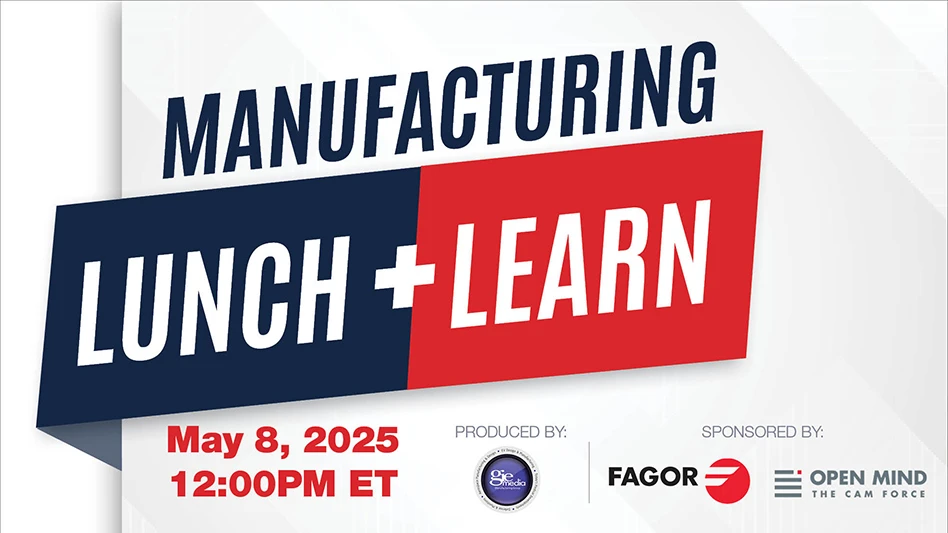
Cleveland, Ohio – If you missed the first two articles that offer of a look at Northeast Indiana, you can go read about Northeast Indiana’s success in medical device manufacturing as well as how fast Nextremity Solutions is growing since relocating from New Jersey to Indiana.
Another visit on my trip to Indiana was with Banner Medical and Dave Simak, marketing manager, gave us insight into the company and its offerings.
Banner Medical is part of Banner Service Corp. and has been in the metal processing business for roughly 55 years and is a ISO 13485 certified material supplier to the medical device industry. Customers of Banner include OEMs and contract manufacturers involved in orthopedics, dental, trauma, spine, extremities, equipment, and more – the material they supply can be for implants, instruments, or patient-care devices.
Having a solid supply chain is critical and Banner Medical has strategic relationships with mills – ATI, Carpenter, Sandvik – so customers know the materials they purchase are from a reputable source. According to Simak, Banner buys direct from and source all types – titanium cobalt chrome, aluminum stainless, implantable stainless, etc., and the company carries about 8 million pounds of inventory per month on average, typically in round bar, cannulated, flat stock, and extrusions.
Value added
Beyond the materials, Banner offers customers options for material processing into specified diameters, lengths, shapes, and features. Value-added services run the gamut from centerless grinding to turning, straightening, chamfering, ultrasonic testing, cut-to-length, chrome plating, heat treating, custom profiles for extrusion shapes, and near-net shape components and implants, material composition confirmation, and surface treatments. However, there’s also the need for traceability and quality certification in precision manufacturing, so Banner is also ISO 9001 certified and for those customers involved in aerospace work as well as medical, the company holds AS9100 certification as well. Boasting a range of certifications offers confidence to customers so they know the material they order is what it needs to be for the parts they produce. In addition, Banner has a quality management system that is tailored to meet the stringent requirements of equipment and process validation per FDA standard protocol as well as having developed its own proprietary manufacturing software and administrative systems to mitigate risk and ensure materials are defect-free. The system elements include:
- ISO 13485 certified
- FDA 21 CFR part 820 compliant
- XRF inspection of incoming and shipped material to assure correct alloy & composition
- Ultrasonic testing to the latest ASTM, ASM, and other OEM specifications
Presently in full operation at the Warsaw facility are:
- Centerless grinding lines
- CNC Swiss lathes
- Waterjet capability
- Cold sawing
- Ultrasonic testing
And soon to be installed are:
- 3- and 5-axis mills
- An NDT lab
- A metallurgical lab
Precision is necessary in medical
Precision Medical Technologies invests in equipment, quality controls, and expands their offerings to meet customer needs.
Another stop on our Northeast Indiana tour was to Precision Medical Technologies (Premedtec) where we were greeted by Ryan Thornburgh, business development manager and Ryan Christner, customer service/human resource manager. An ISO 13485:2003 certified contract manufacturer, Premedtec echoes the same theme that keeping it local works well for them – from suppliers and vendors to customers – because if there’s a problem we can get together, discuss it, and resolve any issues quickly and accurately.
It’s not a quick look at the equipment Premedtec has, it’s rather extensive and includes:
Vertical 4- and 5-axis CNC milling
- Five 5-axis Haas VF-3SS
- Five 4-axis mills
Swiss-style CNC lathes
- Tsugami TMU1 38mm, 11-axis milling & turning
- Star 32mm ECAS, 11-axis milling & turning
- Star SV32JII milling and turning capabilities
- Star KJR 16, milling and turning capabilities
Chucker style CNC lathes
- Four Mori Seiki NL-2500, 6-axis milling & turning
- Mori Seiki SL 2500, 6-axis milling & turning
- Mori Seiki SL-150, 6-axis milling & turning
- Clausing Storm 80 CNC lathe
Submersible wire and sinker EDM’s
- Fanuc Alpha 0i 10" AWF
- 3 Sodick AQ, AWF’s
- Agie Charmilles RoboForm 20 sinker
PEEK cell
Gun drilling
- El Dorado M75-30, ¾" Ø with tailstock and counter rotation
Prototype cell
- Haas tool room mill
- Clausing-Metosa lathe
- Clausing Equiptop grinder
Additional capabilities
- Laser etch – Electrox Cobra 20W ND YAG diode
- Cleaning and passivation implants instruments – Crest Ultrasonic OCJ, 1218; citric & nitric
- Welding, TIG, MIG, laser, and micro-TIG
- Polishing, blasting, and bending
Quality assurance
- Brown and Sharp global image CMM with PC DMIS
- Optical comparators – Various 14" to 30"
- Inspection - Vision Engineering Mantis Elite, 6X and 10X
- Thermo Scientific Material Analyzer

Complementing the Warsaw location is the Rome facility that is known for production of medical instruments – and that runs more as a typical job shop with normal order quantities of 10, 20, or 50 units with multiple components. A product mix as such requires constant changes or set-ups on CNC equipment and the low volumes require 100% check of critical dimensions at the machine.
No matter which location our hosts talked about, dedication to quality is what is evident from Premedtec, as they note that just in the past 12 months they have added more employees in the quality room, added more on-machine inspection capabilities, and reconfigured some inspection routines – with that alone increasing production rates by 20% from previous processes.
While the company’s core competency is evident in the array of medical devices they manufacture, and have on display, one area Thornburgh and Christner notes has changed is Premedtec’s involvement in inventory management. Today, Thornburgh explains, Premedtec’s vendor-managed inventory is designed to ensure they have 2-1/2 to 3 months of a customers’ stock ready for delivery in less than a week in the situation where a surgical case or tray is missing an item that would prevent a surgeon from doing a procedure.
The company’s approach to manufacturing parts from customer order to finished product is driven by the goal of minimizing variation in the manufacturing process in order to drive high quality performance by reducing or eliminating job changes, manufacturing on dedicated equipment, and completing the implant production in one operation.
Their investment in equipment can be seen as a testament to that strategy.
Latest from Today's Medical Developments
- Siemens accelerates path toward AI-driven industries through innovation and partnerships
- REGO-FIX’s ForceMaster and powRgrip product lines
- Roundup of some news hires around the manufacturing industry
- Mazak’s INTEGREX j-Series NEO Machines
- The Association for Advancing Automation (A3) releases vision for a U.S. national robotics strategy
- Mitutoyo America’s SJ-220 Surftest
- #56 - Manufacturing Matters - How Robotics and Automation are Transforming Manufacturing
- STUDER looks back on a solid 2024 financial year





